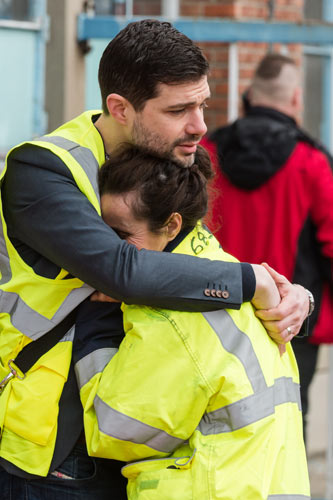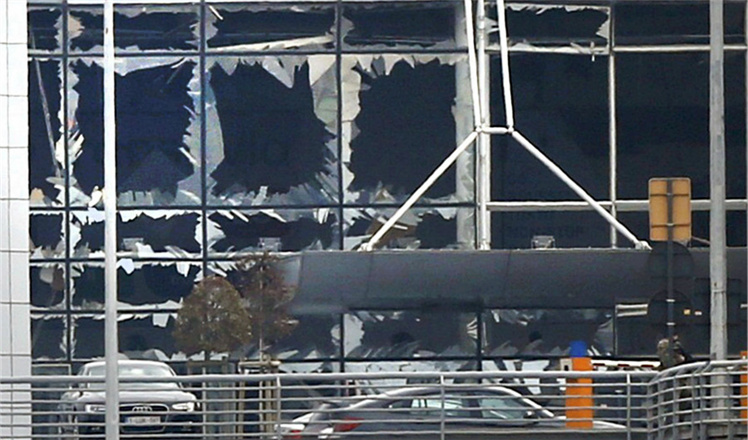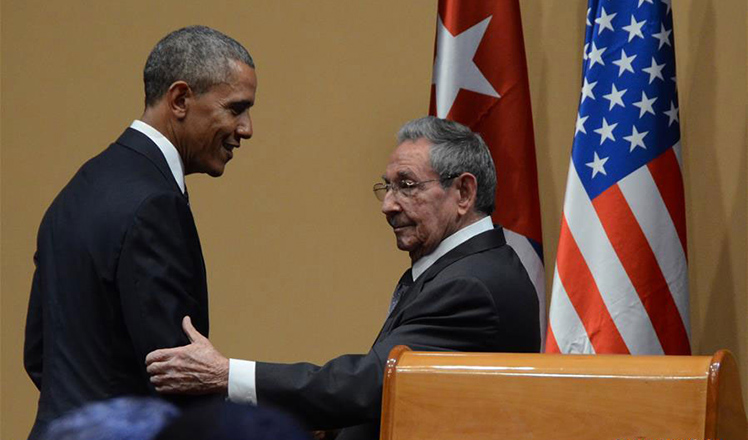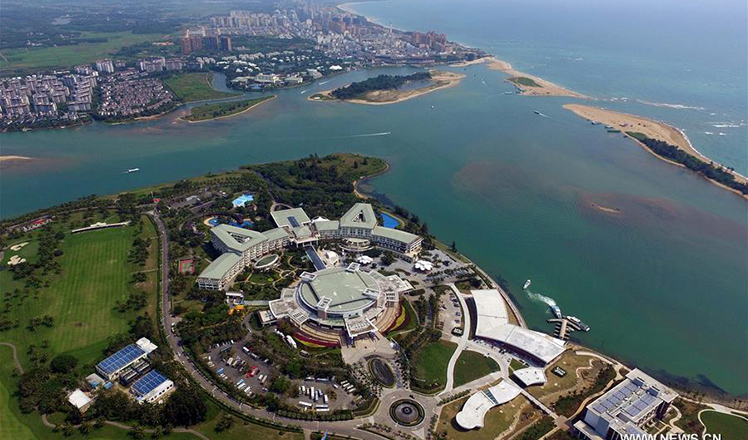United efforts essential to combat common scourge
Updated: 2016-03-23 07:09
(China Daily)
|
||||||||
 |
|
A man comforts a woman outside Brussels Airport after explosions rocked the departure lounge, killing at least 14 people on Tuesday. [Photo/Agencies] |
The death toll may not be the heaviest, yet the multiple blasts at the Brussels airport and a metro station were cause for serious concern.
Because they occurred in the heart of Europe, at a time when the European Union remains on high alert after the attacks in Paris on Nov 13 and when countries were preparing and prepared for further attacks.
Particularly so in Brussels where the police were being ultra-vigilant in anticipation of reprisals after a suspected participant in the Paris attacks was arrested in the city four days ago.
As Belgian Interior Minister Jan Jambon said on Monday, his country was on high alert for a revenge attack.
And because of this, the fear and panic the blasts caused, as intended, which led to the airport being evacuated and the closure of the subway system, spread far beyond the bloodshed.
For while the Brussels attacks may be acts of despair by cornered terrorists as a result of the tireless manhunt closing in, there is the suspicion they may be evidence that terrorist cells remain both active and capable despite the efforts being made to track them down.
If that is the case, the fact that they can attack amid such vigilance means they can probably do so at any other time. Especially since no country can afford to remain on high alert indefinitely.
And if they can strike in Brussels, they can do so in other places, because not everywhere can afford the degree of preparedness the city had demonstrated.
The situation is even more worrisome considering the chaos recent refugee inflows have brought about. Not to mention the rumors that terrorist organizations are taking advantage of the crisis to infiltrate Europe.
The attacks in Paris, along with the sexual assaults in Germany, had already prompted calls for reevaluating the approach to refugees. What happened in Brussels will only amplify those calls.
While the attacks have again revealed Europe's vulnerability to terrorism, that is no excuse for complacency by other countries. We cannot afford to ignore the essential underlying message that no country is safe nowadays, as globalization makes it easier for terrorist groups to operate across borders.
The current anti-terror campaign has been less than effective, in part, because the international community has yet to come up with a meaningful alliance that is truly united in its efforts to combat terrorism. And a united front is out of the question if countries cannot even agree on what constitutes terrorism.
- Victims of Brussels attacks commemorated
- Britain beefs up security after Brussels attacks
- Brussels attacks 'not a surprise': UK security expert
- Europe ramps up security in wake of Brussels attacks
- Cameron calls emergency COBRA meeting after Brussels attacks
- In photos: Brussels rocked by multiple explosions
- Brussels airport cancels flights, evacuates passengers
- Fugitive from Paris attacks wounded in Brussels shootout
- NASA's Kepler sees first 'shock breakout' in exploding star
- First case of Zika virus detected in S.Korea
- Syrian mothers: Survival and loss
- Gender barrier falls as Air Force general makes history
- Russia retrieves data from recorder of crashed plane
- Obama arrives in Cuba to begin visit in thawing of ties

 In photos: Brussels rocked by multiple explosions
In photos: Brussels rocked by multiple explosions
 Raul Castro and Obama hold talks in Havana
Raul Castro and Obama hold talks in Havana
 Facebook's Mark Zuckerberg visits China's Great Wall
Facebook's Mark Zuckerberg visits China's Great Wall
 Apple releases smaller iPhones for new consumers
Apple releases smaller iPhones for new consumers
 China's 'sleep testers' search hotels for a good night's rest
China's 'sleep testers' search hotels for a good night's rest
 Practice makes perfect: Preparing for Boao forum
Practice makes perfect: Preparing for Boao forum
 A look of Boao Forum for Asia International Conference Center
A look of Boao Forum for Asia International Conference Center
 Culture Insider: 5 things you may not know about the Spring Equinox
Culture Insider: 5 things you may not know about the Spring Equinox
Most Viewed
Editor's Picks

|

|

|

|

|

|
Today's Top News
Marriott unlikely to top Anbang offer for Starwood: Observers
Chinese biopharma debuts on Nasdaq
What ends Jeb Bush's White House hopes
Investigation for Nicolas's campaign
Will US-ASEAN meeting be good for region?
Accentuate the positive in Sino-US relations
Dangerous games on peninsula will have no winner
National Art Museum showing 400 puppets in new exhibition
US Weekly

|

|








